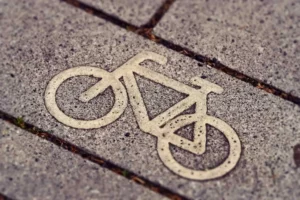Florida District Court of Appeal Finds for Injured Bicyclist in Underinsured Motorist Case

Florida auto accident litigation has many phases after the initial lawsuit is filed. Many appellate decisions focus on summary judgments or jury verdicts, but a lot of legal process can be left after a jury trial – especially in auto accident cases in which additional claims must be pursued separately. Post-trial motions can alter jury verdicts to the point they are unrecognizable from the amounts awarded by a jury of peers. Experienced personal injury litigators can make a huge difference by aggressively pursuing different avenues of legal relief and defending the amounts awarded by a jury.
This summer, the Third District Court of Appeal issued an opinion that dealt with an award of attorneys’ fees from the injured person to the injured cyclist’s insurance company. An underinsured driver hit the injured man, who was riding his bicycle in a pedestrian crosswalk. The injured cyclist alleged the collision caused severe and permanent injuries worth over $300,000.The injured cyclist filed suit against his own auto insurer, asking for the UM (underinsured/uninsured) coverage through his personal auto insurance policy.
Prior to trial, his insurer provided a couple of proposals for settlement. The proposals gave notice of the insurer’s attempt to resolve the claims. Attached to the proposals were releases that broadly covered all present and future claims that he or any of his heirs or representatives may have. The injured person took the matter to trial, at which the jury found the injured cyclist and the defendant driver to be equally responsible for the injuries that occurred. The jury awarded $110,000 for past medical expenses, but it declined to award future damages, past pain and suffering, and future pain and suffering. The court conducted a post-trial hearing and considered motions by both parties. Ultimately, the court entered a final judgment in favor of the injured person for $5,000. The plaintiff appealed the final judgment, which was affirmed by the Third District Court of Appeal in a per curiam decision. Following that determination in its favor, the insurer then moved for attorneys’ fees, based on its proposal for settlement.
The trial court granted the insurer’s motion and entered a final judgment of $45,000 for the insurer. The present appeal followed. The injured person argued the proposals were ambiguous, based on the differences between the language of the proposals and the attached releases. The injured person, on appeal, continued to argue the language of the proposals could not be reconciled with that of the releases.
The matter is governed by Florida Rule of Civil Procedure 1.442, which requires proposals for settlement to be described with particularity and clarity. The rule does not require proposals to be completely free of ambiguity, but the settlement proposal must be definite and sufficiently clear, and it must allow the offeree to make an informed decision based on the information within the proposal. If an ambiguity exists and can reasonably affect the offeree’s decision, the proposal will fall short of the statutory requirement.
The appellate court agreed there was a discrepancy between the broad release and the more limited settlement proposal. The difference created the type of ambiguity Florida Rule of Civil Procedure 1.442 seeks to avoid. The court looked at an earlier decision in which they ruled a proposal to be unenforceable, since it remained unclear whether this claim was actually addressed in the settlement. The injured person in this lawsuit still has the possibility of a Personal Injury Protection (PIP) claim against his insurer, but the court could not figure out whether the release includes this claim or not. The proposal does not include it as a compulsory claim, but the language of the release leaves the possibility of inclusion open. Since the injured person’s decision to accept or reject the proposals was reasonably affected by the ambiguity of the documents, the proposals were ruled invalid. The court reversed the award of attorneys’ fees and remanded the matter for further proceedings.
The Florida uninsured motorist accident attorneys at Weston & Pape can help you with your auto accident case. Serious injuries are accompanied by hefty expenses, so it is crucial to maximize every avenue to monetary relief. Our office has the knowledge and understanding you or your family member needs to follow through with every part of the litigation. If you’ve been injured by an uninsured or underinsured driver, call our office today at 772-266-5555 or 561-299-3999 for a free, confidential consultation.
More Blog Posts:
Florida District Appellate Court Reviews Future Medical Expenses in Multi-Car Accident Case, Florida Injury Lawyer Blog, November 28, 2016
Federal Circuit Court of Appeal Declines to Find Equitable Tolling in Slip and Fall Case, Florida Injury Lawyer Blog, October 21, 2016
Florida Court of Appeal Allows Injured Motorist to Pursue Additional PIP Payments to Medical Providers, Florida Injury Lawyer Blog, May 18, 2017

 Call Us Today
- It's Free
Call Us Today
- It's Free